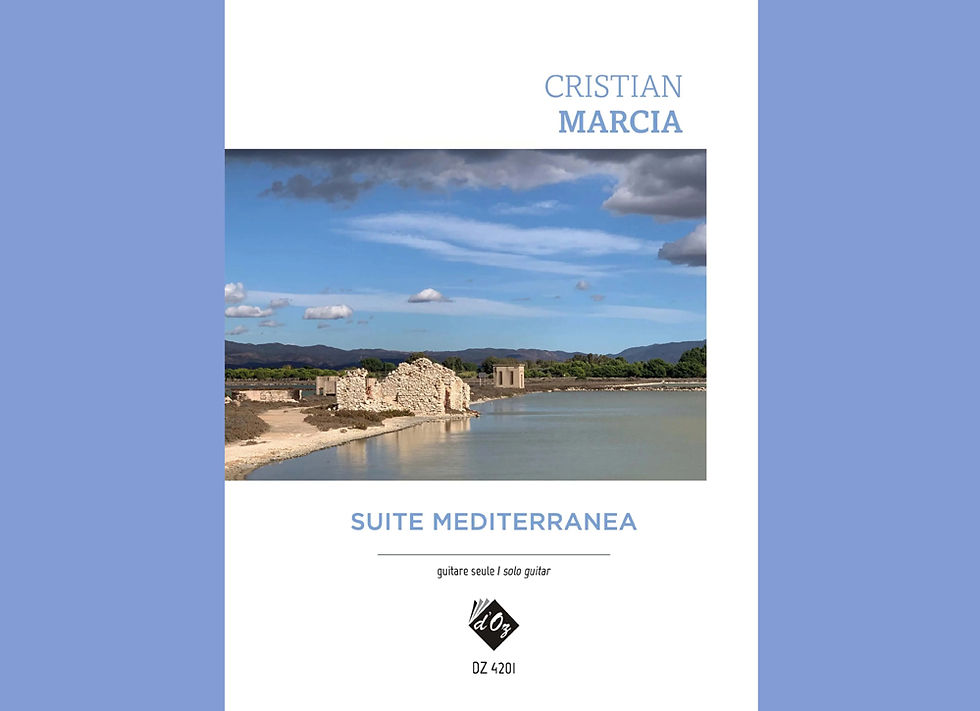
Cristian Marcia
Les Productions D’Oz: 24 pages
Italian born Marcia’s Suite is an 8 – movement affair with a quite unusual idea behind it. He describes it as a minimalist suite that is tonal but uses repetitive patterns to create a hypnotic texture that should create an ecstatic state with any listeners.
Intrigued by this description, I began with Harmonia, the 1st movement, which begins with an expressive Adagio styled rising and falling arpeggio in quavers underneath a long voiced melody .Then after the opening introduction, the piece begins a pattern which repeats in various different places on the fretboard, consisting of an undulating rising arpeggio followed by a falling arpeggio in the next bar. This pattern continues for a while at times returning to the opening introductory idea. It was quite pleasant and an interesting piece to try.
Melodiam , another adagio continued the idea by having its first 26 bars consisting again of a rising arpeggio with the melody line interwoven with it, but moving quite extensively around the fingerboard as it progressed. Then at bar 27 we find a complex semi – quaver pattern, built around open strings and stopped strings mixed together as a shape and then that pattern moving up and down the fingerboard, creating unusual sounds as a result, after which the opening idea returned.
Itineris begins with a low single voiced melody, which at bar 9 develops into another pattern of continuous semi – quavers, which continues like that for the remainder of the piece, another 45 bars. Yes the chordal arpeggios do develop but by now I was beginning to see what the composer meant by the use of repetitive patterns.
Volantes begins with quintuplet quaver arpeggios in an unusual pattern, before becoming straight quavers in another pattern that rises and falls with the odd note in the middle changing as it goes forward. After a short section of a single quaver line involving hammer –ons and pull – offs, another semi-quaver section emerges that continues for two more pages, eventually becoming an odd rhythmed set of chords in a passage of 7/8 time. Then a DC al Coda takes us back to repeat most of what we have played before.
Movement 5, Minimalism is entirely in semi – quaver patterns, and I must be honest that, by now, I was beginning to want something different, and was a losing interest. The actual work required to play them is quite considerable but just repeating patterns over and over again was having its effect on me.
The other 3 movements Pink Lady, Bentu de Notas, and Fuoco Ritmico did nothing to change my mind. As technical studies I can see their usefulness, but as an 8 movement suite to be played to an audience, I would think that, rather than put them in a contemplative and ecstatic state, it would have the opposite effect. So, it was an interesting idea, but, overdone in my opinion, but you might think quite different!
Chris Dumigan

Yorumlar